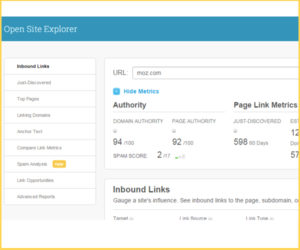
There is a misconception that SEO means just optimizing the title and meta description tags with the keywords. If you’re a small business owner with a very limited budget, here are our recommendations of the top 10, free to use, SEO tools that help you with on-page and off-page Search Engine Optimization in Dubai. If you’re working on the content strategy for the newly launched website, these tools will help you to come up with and write the most effective content with the right sets of keywords and optimize it for the search engines like Google and Bing. Here are the tools you need to do SEO Dubai
1. Google AdWords Keyword Planner
Google keyword research tool can be used to get keyword ideas, their search volume per month by country, competition, and ad group ideas. This is a very good starting point to plan and optimize your content strategy. Enter all the keywords which you think will be used by your target audience and analyze the list of related keyword suggestions provided by Google. The competition score mentioned in this tool is PPC but still, you can use it as an indicator to understand the competitiveness of the keyword.
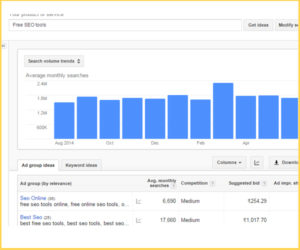
Running short of keyword ideas? Use kewordtool.io. This tool not only provides suggestion like Google’s Adwords tool but also provide additional ideas based on the keywords fetched from Google’s auto-complete feature. You can use this tool to extract hundreds of long-tail keyword ideas.
Though the free keyword tool has limitations, it’s good enough for beginners to get new keyword ideas.
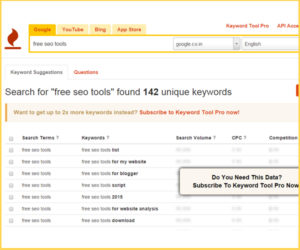
3. Copyscape
Copyscape, one of my favorite and oldest tool, compares your website content with other websites and finds out if there are any duplicate copies of your content anywhere on the web. Also, when you get your content from your external agencies it’s a good practice to check the quality before posting it on your website.
4. Siteliner
With Siteliner checking the content in your sites and identifying the pages which have duplicate content is too easy. Enter the URL of your website and the magic begins. Siteliner checks your website for duplicate content, broken Links, and related domains. This is one of the must-use tools for SEO on-page optimization.
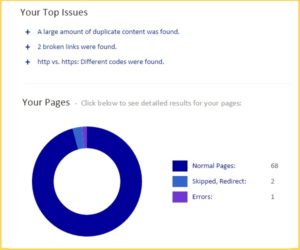
Google webmaster tool is the first step in SEO and is a must-have tool for every SEO professionals. Google webmaster provides you suggestions on HTML improvements, crawl errors, title and description tag duplicate issues, and much more.
Screamingfrong’s SEO audit is very useful to automate your SEO audit process and the tool will scan through your website and find issues in a redirect, meta refresh, duplicate page, and more. The free version of the tool checks max. 500 URLs. The tool has to be locally installed and the web version is not available.
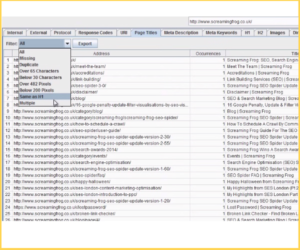
7. Google Developers PageSpeed Insights
Another great tool from Google. Using this tool you can analyze the page loading speed of your website on desktop and mobile. Also, it provides suggestions to improve your page speed. Page loading speed plays a key role in search engine optimization and ranking of keywords.
If your in-house web team is inexperienced in creating schemas then point them to this site. This site will help them to create the schemas for your website quickly and easily. They have a WordPress plugin as well, which is great news for the site owners who are using WordPress as their CMS.
Power your website with rich snippets and improve your click-through results in organic results.
A sitemap is a structured way to inform Google and other search engines about the list of pages on your website and the priority in which it has to be crawled. Creating a sitemap from scratch can be a headache for any business and XML-sitemaps helps you to automate this process. If you’re having your website in popular CMS platforms like WordPress and Joomla then there are plenty of extensions/plugins available to automate the XML creation process. XML-sitemaps.com can be used in places where automation of the sitemaps is not possible as and when a page is created.
The free version of the tool crawls a maximum of 500 URLs
Once your sitemap is created, upload it to your root folder and submit the link to Bing and Google webmaster accounts.
Use Moz’s open site explorer to understand a website’s popularity, websites linking to it, top pages, etc. You can use this site to analyze competitor’s links and popularity. Though the free site has limited options, you can use it for basic competitor’s analysis.
